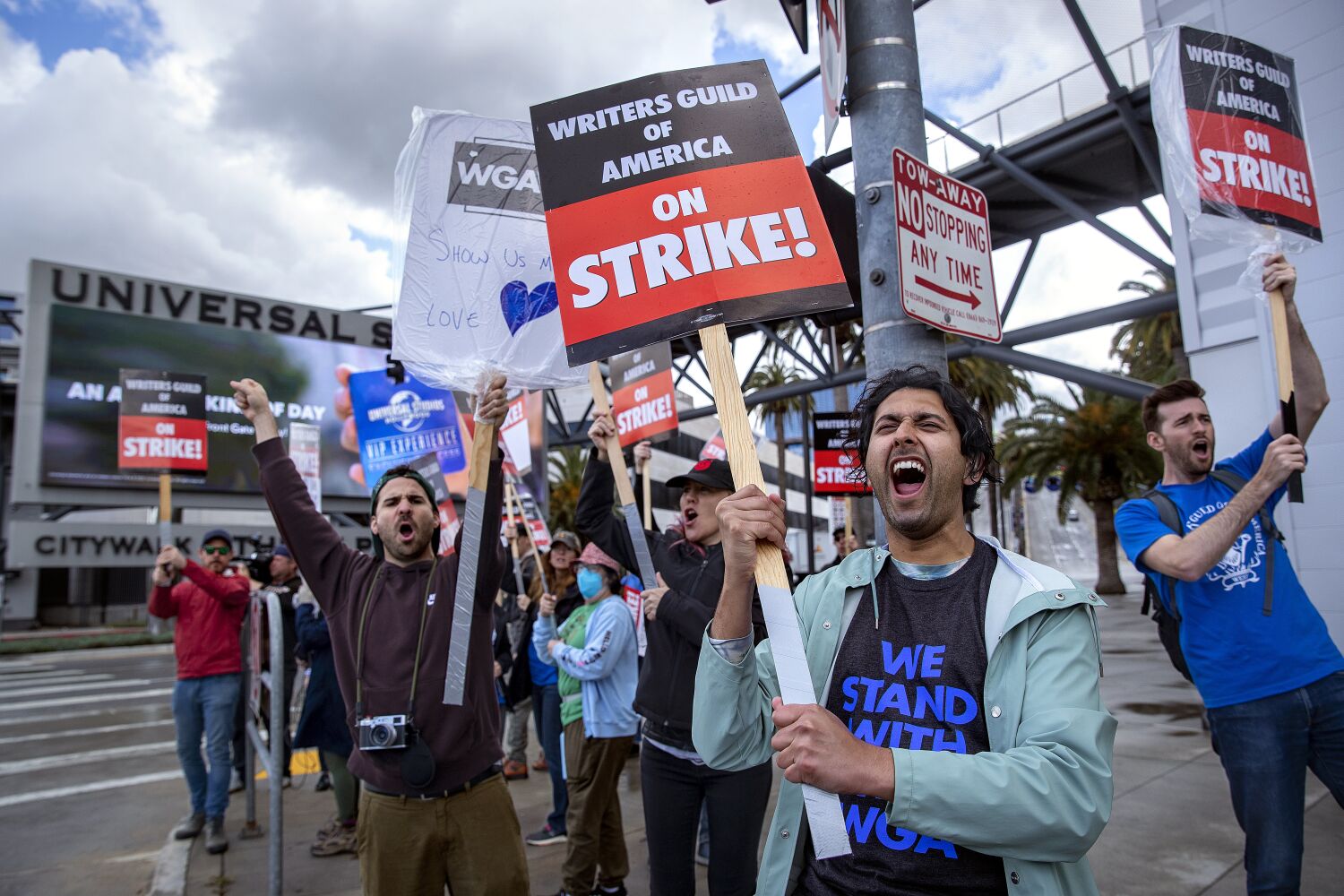[ad_1]
Representatives of the Writers Guild of America and the major studios have agreed to meet for the first time since the Hollywood writers’ strike began three months ago.
In a statement sent to its members on Tuesday night, the WGA’s negotiating committee said that the Alliance of Motion Picture and Television Producers, which bargains on behalf of Walt Disney, Warner Bros. Discovery, Netflix and other streamers and studios, reached out to request a meeting on Friday to discuss negotiations.
It is not clear whether the meeting will result in any breakthrough to resolve the months-long conflict, but it is a sign of a possible thaw in the tense standoff over streaming pay and other issues.
“We’ll be back in communication with you sometime after the meeting with further information,” the WGA negotiating committee wrote.
The meeting comes at a time when studios face mounting pressure to resolve a widening labor standoff that has roiled Hollywood.
Nearly three weeks ago, members of SAG-AFTRA joined writers on picket lines, halting film and TV productions nationwide.
Planned movie shoots have been scrapped. And the upcoming fall TV season is in jeopardy, without new scripted episodes of “Abbott Elementary,” “Law & Order: SVU” and “NCIS.”
Top studio executives discussed a strategy for resolving the conflict at a meeting last Friday.
“We remain committed to finding a path to mutually beneficial deals with both unions,” the AMPTP said in a statement on Tuesday.
The union sought to downplay expectations of an imminent resolution.
“As we’ve said before, be wary of rumors,” the WGA negotiating committee said. “Whenever there is important news to share, you will hear it directly from us.”
The union said it had no further comment.
The sides remain far apart on a number major issues, including demands by writers to secure a larger share of streaming revenues, greater protections against the use of artificial intelligence and increases in minimum pay rates to offset inflation and the shift toward shorter TV seasons.
[ad_2]
Source link

